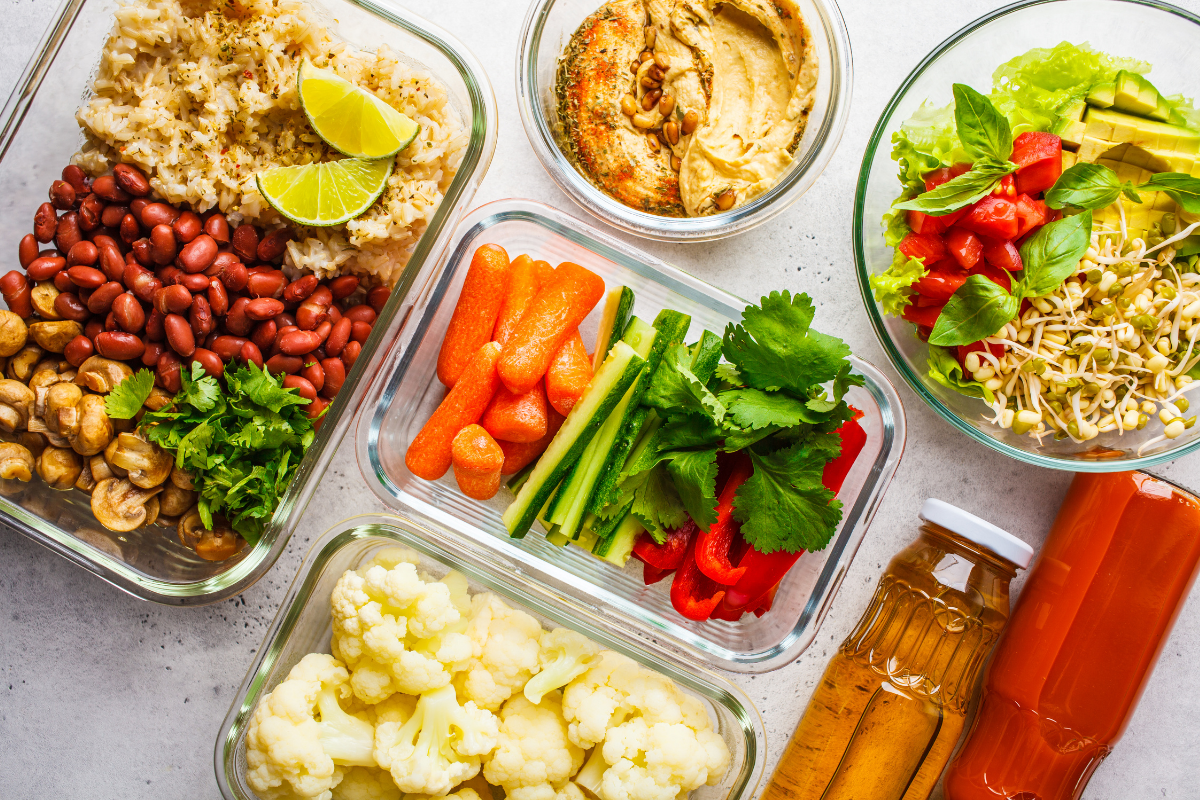Veganism has been on the rise in recent years and is becoming an increasingly common lifestyle choice. But what exactly does it mean to be vegan? What are some of the benefits? And most importantly, how do you go about living a vegan lifestyle?
With so many misconceptions and misinformation surrounding this lifestyle, it can be difficult for newcomers to figure out where to start. So here’s your ultimate guide for everything vegan. Regardless of where you currently stand on the issue, whether you’re considering adopting a vegan diet or just want to learn more about what it means, this article will give you all the information you need!
What is Veganism?
Veganism is a way of living that seeks to exclude the use of animals in any way or form. It is a lifestyle choice that includes not eating or using animal products, such as dairy, eggs, or leather. It goes beyond just diet and into other areas such as clothes and personal care items. This includes anything that could have been tested on animals.

What is the difference between vegan and vegetarian diets?
A vegan and vegetarian diet are two different things. When you eat a vegan diet, you don’t eat any animal products of any kind. That includes meat, fish, eggs, dairy, and honey. What people often refer to as a “vegetarian” diet is actually just a Lacto-Ovo vegetarian diet which means you still consume eggs and dairy products.

Why do people become vegan?
There are many reasons why people become vegan. The most common reason is that they want to eat better, healthier food. A vegan diet has been shown to promote weight loss and reduce the risk of obesity, heart disease, diabetes, and cancer.
Some people go vegan for ethical reasons as well. They want to avoid consuming animal products due to the cruelty that animals suffer in the meat industry or factory farming industries.
Others do it because they believe a vegan lifestyle is more environmentally-friendly than eating meat products because it eliminates the need for animal feed, livestock production, and deforestation caused by cattle ranching.

What are the health benefits of going vegan?
Going vegan isn’t just a diet or lifestyle choice. It’s a philosophy that promotes the idea that we should not harm animals, whether they are human beings or not.
There is a long list of health benefits, but some of the more popular ones are:
- Lower cholesterol levels
- Higher levels of antioxidants
- Reduced risk for heart disease
- Decreased risk for cancer
- Less intake of saturated fats, cholesterol and sugars
How to Transition to a Vegan Diet
So you’re ready to make the switch to a vegan diet? Here are some tips for starting out:
- Start gradually. If you’re interested in becoming vegan, but also want to continue consuming animal products, start by reducing your meat intake. As time goes on, you should find yourself getting used to the idea of being vegan and eventually making the transition.
- Learn about what food options are available for vegans. There’s a misconception that vegans don’t eat anything. The truth is, there are lots of delicious foods that fit well into a vegan lifestyle. You just need to do some research and find out what those options are! For example, you might want to learn about how to cook tofu if you’re not already doing so or how to make delicious plant-based meals with spaghetti squash or eggplant instead of meat.
- Find alternatives for your favorite foods. This can be difficult if you’re trying to cut out meat altogether, but there are still ways around it! One way is to replace meat with vegetables like mushrooms or cauliflower so that your meal resembles something more traditional (e.g., lasagna). Another option is replacing dairy with plant-based milk like soy or almond milk in cereal or recipes that call for milk as an ingredient (e.g., macaroni and cheese). There’s even vegan cheese available now which is great for pizza night!

Nutrition for Vegans
Since going vegan means you’re cutting out all animal products from your diet, it’s important to be sure you’re getting the nutrition you need from other sources. Sure, it sounds like a pretty easy swap, but there are some pitfalls to watch out for.
- A plant-based diet generally contains enough protein if you’re eating a variety of vegetables, whole grains, and legumes. But if your intake is lower than the recommended daily allowance (RDA), then it might be worth taking supplements or adding an extra shake or two to your day.
- Vegans tend to eat more healthy fats than their meat-eating counterparts because they don’t eat any animal products that include unhealthy fats. This can lead to lower cholesterol, less inflammation, and more energy.
- Veganism generally helps people maintain a healthy body weight because plant foods are filling, low in calories, and naturally fat-free. There are also some benefits associated with this lifestyle.
- It reduces the risk of heart disease because meat contains saturated fat and cholesterol that can increase bad cholesterol levels in the bloodstream which increases your risk for heart disease.
- This way of life reduces your environmental impact as purchasing food doesn’t require any packaging whereas animal products generally have packaging associated with them from transportation to grocery stores or butcher shops. There’s also less risk for water contamination due to runoff from cattle farms and dairy farms which happen on a large scale in the U.S., according to Worldwatch Institute research.
Tips for Eating Out as a Vegan
A tip for eating out is going to ethnic restaurants–particularly those that serve Thai, Ethiopian, Indian or Mexican food.
Eating out as a vegan can be tricky. Luckily, there are some tips to make it easier.
These cuisines are typically very accommodating for vegetarians and vegans, often offering meat substitutes and dishes that can easily be prepared without animal products.

Veganism is a type of vegetarian diet that excludes all animal products, including meat, poultry, fish, seafood, eggs, and dairy. Vegans can also choose not to use items that contain animal products such as leather or wool.
There are many health benefits to a vegan diet including weight loss, lower cholesterol, and improved heart health. Transitioning to a vegan diet can be challenging but with the right knowledge and effort, it is possible.
A vegan diet can be a healthy and sustainable lifestyle choice that benefits the environment and animals.







